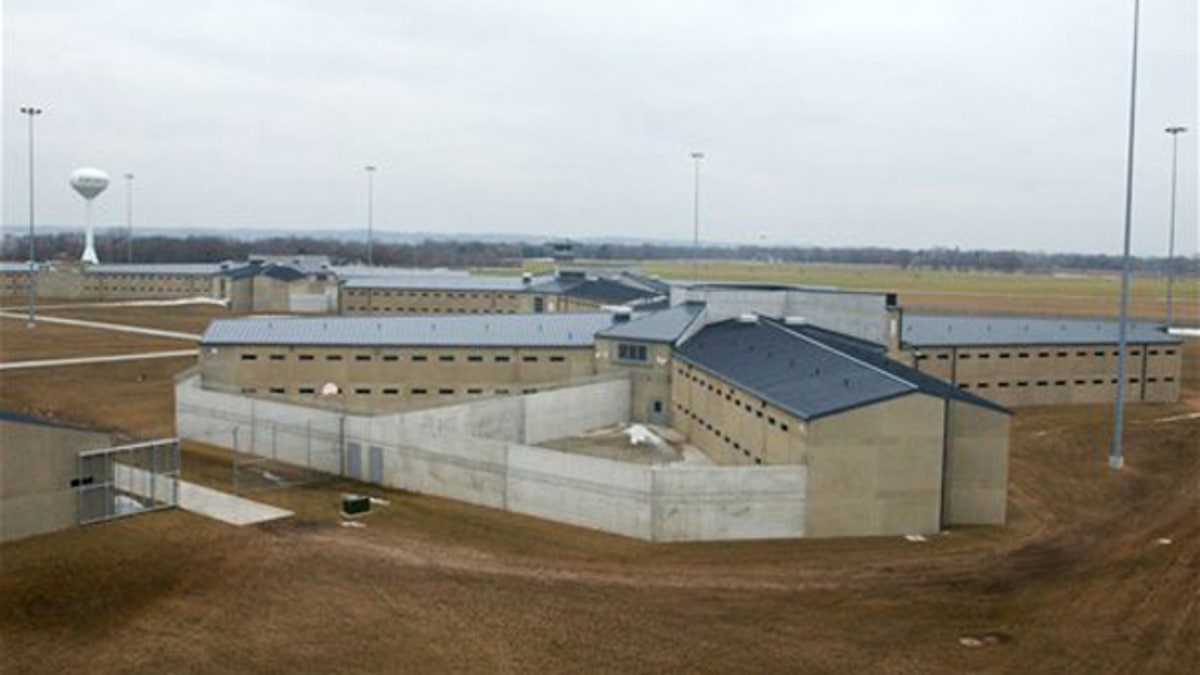
A cell house at Thomson Correctional Center is seen from one of the guard towers at the facility north of Thomson. (AP)
With the administration considering housing Guantanamo Bay detainees thousands of miles from where they might someday be tried, some analysts are raising questions about the "legal chicanery" and logistical problems that could arise from having to pursue a terrorism case across two jurisdictions.
For the five detainees headed to trial in New York federal court, the assumption is they will stay in the nearby Metropolitan Correctional Center, which has held past terrorist defendants, for the duration of the trial. That center might also serve as a temporary holding pen for any subsequent trials in New York stemming from the Sept. 11 attacks.
But until the actual trials, logistical tussles could emerge by detainees being housed in federal court districts different than the ones where they are being tried.
Charles Stimson, a former deputy assistant defense secretary for detainees, said with the Obama administration considering rural Illinois, and several other remote locations, to house the suspects, defense counsel will find "great choices" to pursue their cases.
"You will seek a venue that benefits your client every time," Stimson said.
"You're either going to claim that the judges in the Seventh Circuit in the Chicago-Illinois area should give you relief to let your guy out and if you don't get anything there, you go to the Second Circuit (in New York), so you get double bites of the apple," he said. "You're doubling the opportunities for counsel to increase litigation."
Stimson said the defense could also bring lawsuits over the terms of a detainees' incarceration in the district where he is being held, not the district where he's being tried.
But former federal prosecutor Douglas Burns said that's pretty much the only scenario where both jurisdictions could come into play.
"Once it's assigned to a federal judge there, that's the judge who's involved in any and all litigation with regard to the case," he said. "They really cannot file any motions in the district where they are housed."
Burns said the prospect of having a detainee housed in one district and later tried in another does not raise any complications for the prosecution, especially since the prosecution would have very little contact with the defendant before trial. If anything, he said a remotely located prisoner could hamper the defense since the defense would presumably not be able to meet with the detainee too often in the run-up to the trial.
Mercedes Colwin, managing partner of Gordon & Rees' New York office and a Fox News legal analyst, agreed.
"One challenge that these detainees are going to raise is it's going to impede their ability to prepare their case," she said, noting that the defense attorney would be in one district while the detainee would be in another.
But she said there's another potential complication. Any defense attorney worth his or her salt, would "fight until the end" to move a Sept. 11-related trial out of New York over concern that the New York jury pool would be biased. The district where the detainee is being housed, then, becomes a potential fallback.
"A judge has a lot of discretion," she said. "There are a whole host of procedural issues that come into play."











































